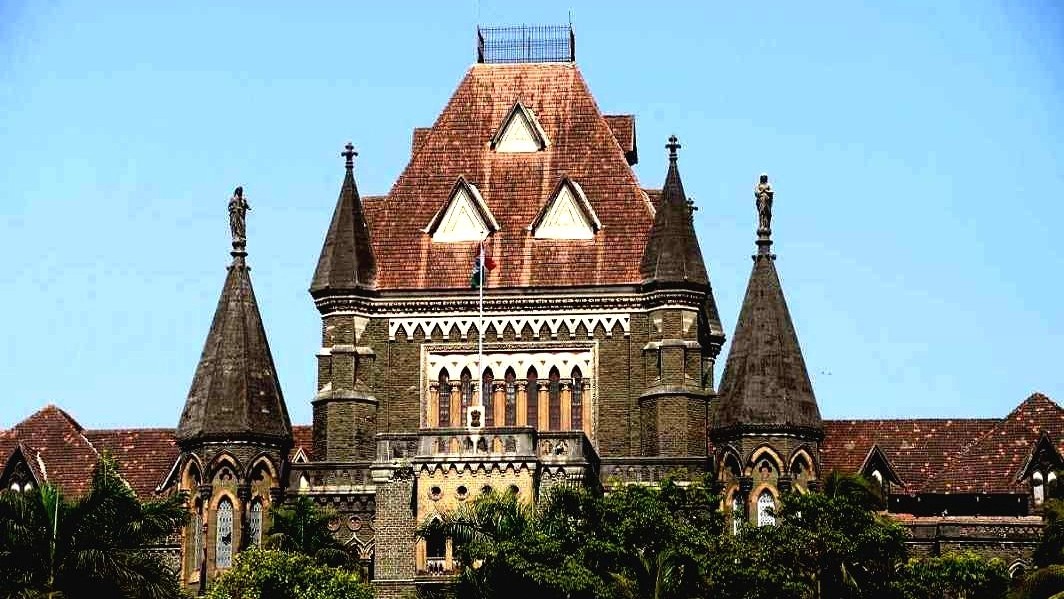Mumbai: The Bombay High Court on Monday criticised the Maharashtra government and civic bodies across the state for not taking its directives on curbing illegal hoardings and banners “seriously”.
Highlighting the environmental hazards posed by the use of plastic and other non-biodegradable materials in such hoardings, the court emphasised that it would be the “personal responsibility” of the highest officer of the authorities concerned — including municipal bodies and police officials—to enforce its orders.
The court also directed civic bodies to conduct another special drive to remove illegal hoardings after the announcement of election results, given the likelihood of a surge in such banners post-elections.
The High Court was hearing a batch of petitions seeking contempt action against civic officials for failing to comply with a 2017 order directing them to prevent defacement of the state with illegal hoardings and banners. On October 9, the court had revived a PIL on the issue, underscoring the need for continuous monitoring.
During the previous hearing, the court had ordered all civic bodies in Maharashtra to undertake a week-long special drive to dismantle illegal hoardings, which were anticipated to increase due to the then-upcoming assembly elections.
The court also called for the “strictest possible action permissible under the law” against violators and instructed the highest-ranking officers—municipal commissioners in corporations and chief executive officers in councils—to submit affidavits detailing actions taken against illegal banners.
On Monday, State’s advocate Neha Bhide informed the court that all civic bodies had conducted special drives. Municipal councils of nagar parishads took action against 7,729 illegal hoardings, collecting fines amounting to Rs 3,16,800 and filing three FIRs against offenders. In total, 294 affidavits were submitted by municipal councils and 129 by civic bodies, including the municipal corporations of Mumbai, Pune, and Nashik.
However, the bench, comprising Chief Justice DK Upadhyaya and Justice Amit Borkar, noted that none of these affidavits were filed by the highest officers of the civic bodies.
The High Court reiterated the need for a special drive post-election results to curb the rise of illegal hoardings. The judges remarked, “Counsel in unison have expressed concern about the menace of illegal hoardings and banners taking an ugly shape in all municipal corporations and councils once election results are declared.” They instructed authorities to be vigilant and ensure that attempts to erect illegal hoardings immediately after election results are swiftly checked.
The court reminded political parties of their undertakings submitted earlier, promising not to erect illegal hoardings or banners. “Almost all the political parties have filed an undertaking not to erect illegal hoardings or banners. However, having regard to what is happening on the ground, judicial note is taken of these illegal hoardings and banners being erected by these parties. Parties are reminded that any violation may have serious repercussions,” the judges warned.
The HC has directed all civic bodies to provide detailed reports of actions taken against illegal hoardings to the State government, which, in turn, must compile and submit these in a tabular and comprehensive format.
Noting that these hoardings often use plastic and other non-biodegradable materials, the court observed: “Considering hazards of illegal hoardings or banners, which more often involve use of plastic or other such bio non-degradable substances, we may observe that any breach of directions contained in this order shall be personal responsibility of commissioners/CEOs, district administration collectors, and police establishment, including CPs, Director of Municipal Administration, and Principal Secretary of the Urban Development Department.”
The matter has been scheduled for further hearing on December 9.

